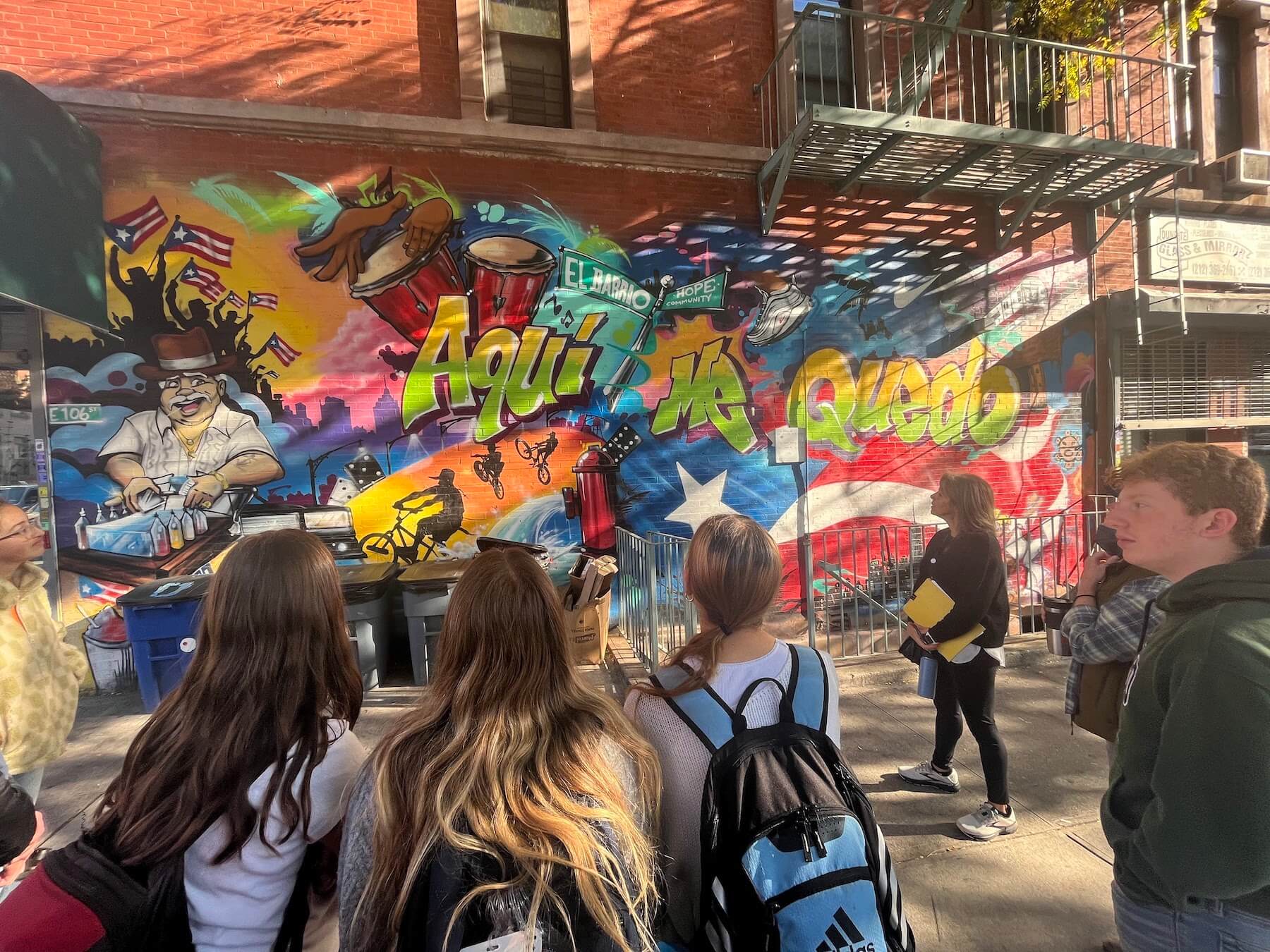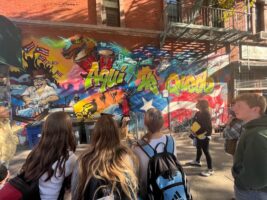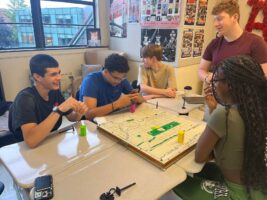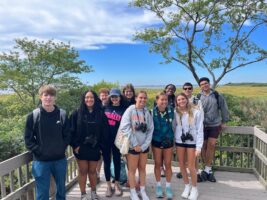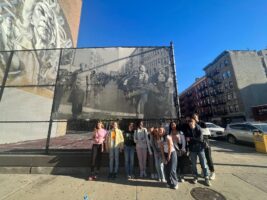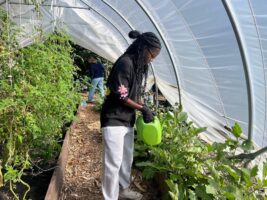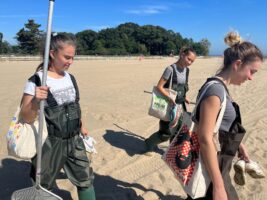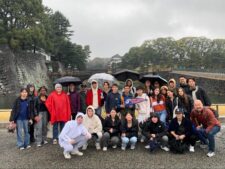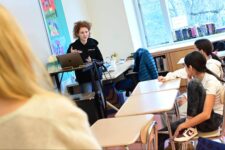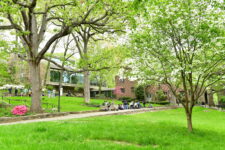With New York City as its backyard laboratory, the Ethical Culture Fieldston School regularly provides opportunities for students to apply what they’ve learned in the classroom to the outside world. Experiential learning takes on particular significance through Fieldston Upper’s City Semester program, in which 11th Grade students integrate their academic disciplines into a study of New York City.
Now in its twelfth year, City Semester is an interdisciplinary, experiential program that encourages students to create their own learning experiences and address urban policy challenges affecting sustainability and equity. Led by City Semester Director Roy Blumenfeld as well as ECFS teachers instructing in their disciplines, City Semester takes students across all five boroughs for their studies of topics such as immigration, arts and literature, water, and more to come to life. The program’s popularity with students also drove the decision to offer City Semester in both the fall and spring semesters as of the 2022–2023 academic year.
“City Semester operates on a very simple premise, which is that New York City is an incredible classroom, one that we are privileged to use as part of an experiential and civic education,” Blumenfeld says. “We think of experiential learning as the kind of learning that students will remember because it is transformative, because they are having experiences that change them in some way — change their opinion about an important policy issue, change their perspective on themselves, or change their relationship to their peers.”

From learning about food migration at the Hunts Point Produce Market to studying the history of mass transportation at the New York Transit Museum, students take their exploration one step further by working with community organizations, collecting historical and statistical data, and speaking to policymakers. They also participate in community service work at sites such as the Brook Park Community Garden and the Mutual Aid Kitchen at La Morada. Throughout the course, students gather information for a final project, which asks them to craft a solution for a systemic issue they’ve noticed within the city.
“Every week, we venture out into the city to explore a complex issue that requires the students to engage their systems thinking,” Blumenfeld shares. “To get perspective on the issue, they are tasked with identifying stakeholders, interviewing them, collecting data, and putting this all together to form an informed opinion.”
Interviewing representatives from different neighborhoods often pushes students out of their comfort zones, expanding their boundaries of a typical classroom setting and encouraging them to use the city as their text.
“The number one thing I’ll take away from City Semester is the idea that the moments when I’m the most uncomfortable always lead to the most growth,” says Liliana H. ’24, who participated in the program as an 11th Grader. “We did group projects and gave presentations constantly. I’m now incredibly confident in my ability to be an active group member without taking over, and I don’t blink an eye when a teacher announces a presentation.”
With students spending at least two days a week off campus, the City Semester program provides real context for lessons initiated in the classroom and paves the way for students’ steps into the “real world.”
“The motto of our semester was to ‘look up,’” says Liliana. “Look up when you’re walking down the street and take in the world around you. New York City was our classroom, and our textbook was everything that makes up the city. This form of hands-on learning taught us to observe and form questions and ideas about the world we live in. It also showed me the value of adapting to your surroundings in a way you don’t get in a regular classroom. Being able to learn about the city we live in and the systems at play within it showed me my passion for sociology and public policy, which I now plan on majoring in in college next year.”

Assigning individual and group work that includes hypothesis testing, essays, creative writing, lab work, and more, City Semester evaluates students in categories such as Social Justice and Awareness, Collaboration, and Systems Thinking/Critical Thinking rather than through traditional letter grades. Alleviating this pressure to earn a certain grade allows participants to value learning in an entirely new way.
“City Semester’s grading system gave me a newfound confidence in myself as a student,” Liliana shares. “By being able to explore all my interests through every assignment, I learned the importance of learning to learn instead of learning to perform.”

“What we see and hear from Fieldston teachers, and what we know from research, is that taking an active part in your education and having agency over your learning has a significant and measurable impact on how students learn going forward,” Blumenfeld adds. “You start thinking of yourself as not just a passive receiver of information, but as an active thinker responsible for authoring your own experience. Gaining the confidence to walk up to someone new and ask to interview them, or knowing how to tackle a significant problem and pivot when experiencing setbacks are skills that students carry with them for life.”
Each semester of the program culminates with an exhibition showcasing the group’s discoveries and projects for the ECFS community. Occurring in the Student Commons, the upcoming fall 2023 City Semester exhibition on January 17th promises to be a testament to students’ boundless growth both inside the classroom and out in New York City.
